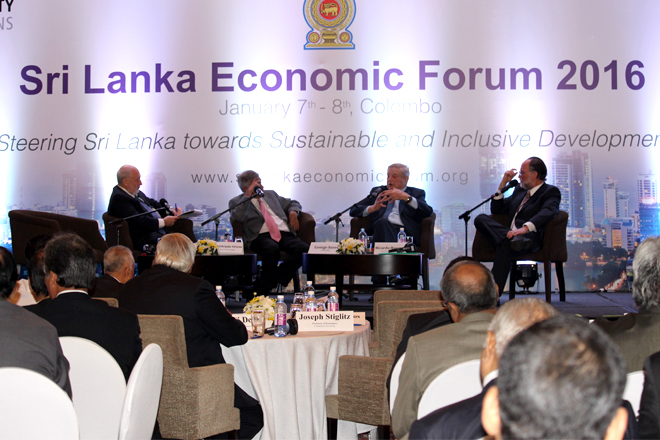online pharmacy buy diflucan with best prices today in the USA
buy azithromycin online http://abucm.org/assets/pdf/azithromycin.html no prescription pharmacy
"What is the best way to increase tax revenue?" the nobel laureate asked a packed forum of government and private sector officials at forum in Colombo.
online pharmacy buy spiriva inhaler with best prices today in the USA
online pharmacy buy champix with best prices today in the USA
He said there are several principles of taxation, one of which is to to tax bads over goods such as environmental pollution.
buy advair rotahaler online http://abucm.org/assets/pdf/advair-rotahaler.html no prescription pharmacy
Carbon taxes help to address the problem of emitters of greenhouse gases not facing the full social cost of their actions. Taxing inelastic goods, was another way to raise tax revenue that leads to less distortions, he said.
buy minocin online https://qpharmacorp.com/wp-content/uploads/2023/08/png/minocin.html no prescription pharmacy
online pharmacy buy naprosyn with best prices today in the USA
buy periactin online http://abucm.org/assets/pdf/periactin.html no prescription pharmacy
A third possibility is land taxation which requires having a national land registry, Stiglitz said. Analysts say some instinctively react negatively to land tax proposals, and they have been controversial in countries such as the United States where they are used. Those arguing for land value taxation say it is a tax difficult for the rich to avoid, promotes more productive use of capital, and provides a stable revenue source, especially for local government.
buy cipro online https://yourolddog.com/wp-content/uploads/2020/08/png/cipro.html no prescription pharmacy
Those arguing against land value taxation say it is a tax on unrealized capital gains, which could unfairly affect retirees or elderly who do not have a commensurate income stream.
buy cenforce online https://yourolddog.com/wp-content/uploads/2020/08/png/cenforce.html no prescription pharmacy
Some taxpayers will fear reappraisal and unfair reappraisals.
online pharmacy buy lariam with best prices today in the USA
buy nolvadex online http://abucm.org/assets/pdf/nolvadex.html no prescription pharmacy
Outlining other methods, Stiglitz explained how taxation on consumption of luxury goods can help in situations of balance of payments problems.
buy ventolin online http://abucm.org/assets/pdf/ventolin.html no prescription pharmacy
Road and congestion taxes, when coupled especially with modern technology, could allow tracking of vehicles and taxing the externality of congestion, Stiglitz added. Economists at the forum added that widening the tax base was more important than the rate in improving tax revenues, with Sri Lanka's tax revenues falling below levels of comparable countries over the last several years.
online pharmacy buy abilify with best prices today in the USA
buy valtrex online http://abucm.org/assets/pdf/valtrex.html no prescription pharmacy


When a lot of crazy people gather at the same location and they are provided food and shelter as well as an outlet to express themselves it is called an asylum.
Start with the questions, why does govt need money ? Are all the expenses necessary ? How can tax money be put to good use ? Are the returns good enough (quantitative and qualitative) ? Now ask what is the fair and just way to collect tax revenue ? People will be willing to pay if it is put to good use and future generations of Sri Lankans will benefit. Selfish ones will ask what is the immediate benefits to me and my children.
There are both sound moral arguments as well as arguments of economic efficiency associated with the idea of raising revenue from those who own and control land (as well as land-like assets, such as the broadcast spectrum or even take-off and landing slots at airports). These assets are all gifts of nature. They have a zero cost of production in terms of labor and real capital (meaning “capital goods”).
Moral philosophers have for many centuries debated the morality of allowing individuals to claim portions of the earth for themselves, then charging others for access. Is not the earth the birthright of all persons equally? If one accepts this principle, then the next question is how to distinguish between the commons and private property. In the late 19th century, Henry George argued with great passion that land (i.e., nature) is the source of all individual wealth but on moral grounds must not be treated as individual wealth or property. Only what one produces with one’s labor and capital goods meets the moral test of legitimate private property.
Sadly, the history of all civilizations centers on the struggle to gain and hold control over territory, over natural resources, and to use this control to live well without having to labor. Look around the world. Who are the most impoverished, the most desperate among us. They are the landless who are forced into the most marginal parts of our cities where housing is poor or nonexistent, where public services are seldom present, and where employment pays barely enough to survive each day.
Political economists began to write deeply on these issues as early as the sixteenth century, challenging the very basis for societal systems based on privilege, on inherited position and on power imposed by force. They did so putting themselves at risk. For example, when Anne Robert Jacques Turgot, the French Minister of Finance during the mid-1700s, attempted to impose taxes on land holdings (including the land holdings of the Catholic Church) he was removed from office by the King.
The list of courageous individuals who have given their lives to fight for the human right of equal access to what nature provides to us free of charge is long. There have been leaders in almost every society who have joined in this struggle over the centuries. To learn more about the history and ongoing efforts to right these wrongs, I invite readers to visit the website of the School of Cooperative Individualism.
Professor Stiglitz is arguing for justice, even if he tempers what he says because that is what most economists — as economists — do.